They don’t make ’em like they used to.

That aphorism has few fans among people shopping for cancer drugs, contact lenses, GPS receivers, and laptop computers, all of which seem to get better with each passing year. Hell, even I know that.
It earns a more positive reply from anyone who’s shopping for an oriental rug, or a fly rod, or a tweed jacket, or a musical instrument—people who will tell you that their fond response to the market for vintage examples of such goods is motivated by two things: older products were better made than their newer counterparts (better designs, better materials, better manufacturing techniques), and some, if not all, of those products, over time, actually improve with use.
Take musical instruments: Many, if not most, adult westerners are aware that the stringed instruments made in the late 17th and early 18th centuries by Antonio Stradivari are prized not only for their superior sound but also for their seven- and eight-figure values. Less well known—though common knowledge among certain male baby boomers, a group for whom this magazine’s founder felt a special warmth—is the extent to which other instruments, including those associated with more modern music, have earned similar distinctions. There are markets for vintage drums, mandolins, banjos, analog synthesizers—and, of course, guitars. The market for the last is thought by some to have been kick-started by a 1975 auction in which musician Stephen Stills and a Japanese industrialist fought a bidding war over a WWII-era Martin guitar. Because the final price was in the high four figures—a remarkable amount for the time—the event is linked to the endurance of guitar shops that cater more to the investor than to the musician, and whose proprietors, many of whom are otherwise scrupulous, engage in a continual effort to raise prices for no reason other than the hope and expectation that the market will bear them.1
This story is from the {{IssueName}} edition of {{MagazineName}}.
Start your 7-day Magzter GOLD free trial to access thousands of curated premium stories, and 9,000+ magazines and newspapers.
Already a subscriber ? Sign In
This story is from the {{IssueName}} edition of {{MagazineName}}.
Start your 7-day Magzter GOLD free trial to access thousands of curated premium stories, and 9,000+ magazines and newspapers.
Already a subscriber? Sign In
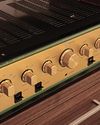
German kitchens, Japanese amps, and Afropop gems
BRILLIANT CORNERS - I have a day job at a museum. One of my favorite things about working there is taking the elevator from my office down to one of the floors open to the public; I walk into the galleries through a discreet panel in the wall. This makes me feel like I'm in one of those horror-movie manors with a tunnel concealed behind a bookshelf. Sometimes I startle people, which I kind of enjoy.

EDITOR'S PICK - RECORDING OF THE MONTH
The record business was awash in money and power. Vinyl LPs were still five bucks, and while the pressings could be suspect, the music-buying public still snapped them up en masse.
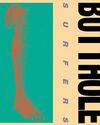
The Butthole Surfers wipe out
REVINYLIZATION - Music's lunatic fringe drifts further out every hour. As it should. In this century, with computers playing an ever-larger role, music continues to fragment and become infinitely more varied. This splintering is either the essence of what keeps it relevant as an art form or something profoundly disturbing, to be hated and feared.
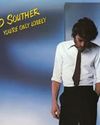
You're only lonely
AURAL ROBERT - The least surprising story in music today is the inevitable passing of irreplaceable talent. Tenor saxophonist Benny Golson died at age 95 the day I finished this salute to another fallen star, Southern California singer/songwriter John David \"JD\" Souther.

PS Audio Aspen FR5 - LOUDSPEAKER
I remember the first PS Audio product: a simple phono stage. It was so simple - a passive RIAA eq filter flanked by a pair of primitive op-amps - that when the schematic was made public, I built one myself; I was in the midst of my DIY years. I thought it was, to use a word from that time, nifty.
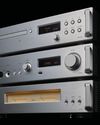
TEAC UD-701N - STREAMING PREAMP, D/A CONVERTER
In Gramophone Dreams #88, I described the sound of TEAC's VRDS-701T CD transport as \"dense and precise in a way I had never previously heard from digital.\" I went on to explain, \"by dense, I mean there was a tangible corporeality effected by seemingly infinite quantities of small, tightly packed molecules of musical information.\"
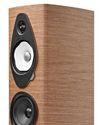
Sonus faber Sonetto V G2 - LOUDSPEAKER
Here's a hard truth: A written review of a full-sized speaker any speaker, really-is, at best, semi-useful. We all listen differently, we have different musical tastes, our system electronics are different, and our listening rooms vary a lot. You will gain a general picture of a speaker's capabilities and foibles from John Atkinson's measurements, and I can tell you how the speakers sound to me, in my room. But that's it. You need to hear them for yourself before making a buying decision. The best I can do is tell you how my music brain felt when the speakers were in my house and making music.
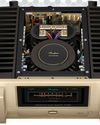
STEREOPHILE'S 33RD ANNUAL - PRODUCT OF THE YEAR AWARD 2024
When Stereophile's Product of the Year Awards were first published, in 1992, we decided that unlike some other publications and their awards schemes, we would keep the number of categories to a minimum. That way, we would avoid what the late Art Dudley once described as the \"every child in the class gets a prize\" syndrome.

Moon 861 - POWER AMPLIFIER
It is unusual to begin a review with a detailed discussion of setup. But setup protocol for the Moon 861 power amplifier ($22,000 each), the top-level amplifier in the North Collection from Moon, which I reviewed bridged in mono, proved crucial to its sound.

Mobile Fidelity, PrimaLuna, and First Watt redux
GRAMOPHONE DREAMS - It's important for readers to remember that I've spent my adult life as an artist and mechanic. Making things. Working as a tradesperson during the day then at an easel or workbench at night.